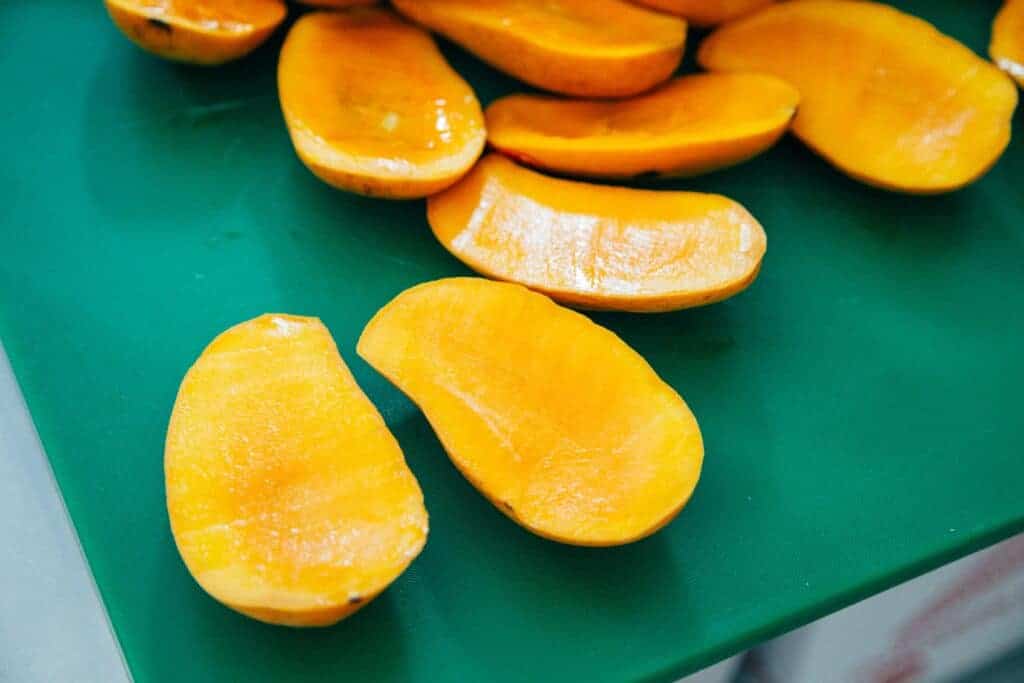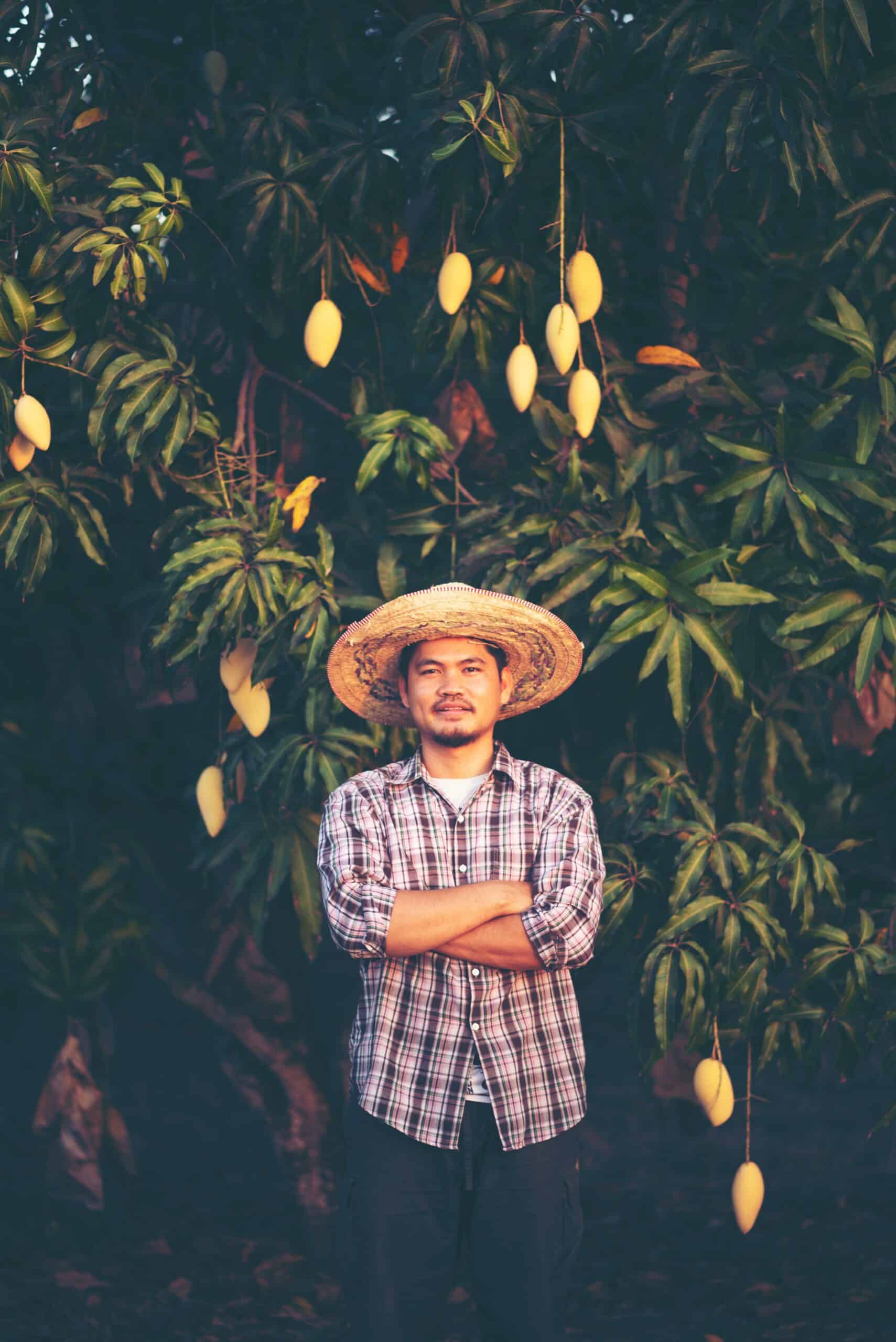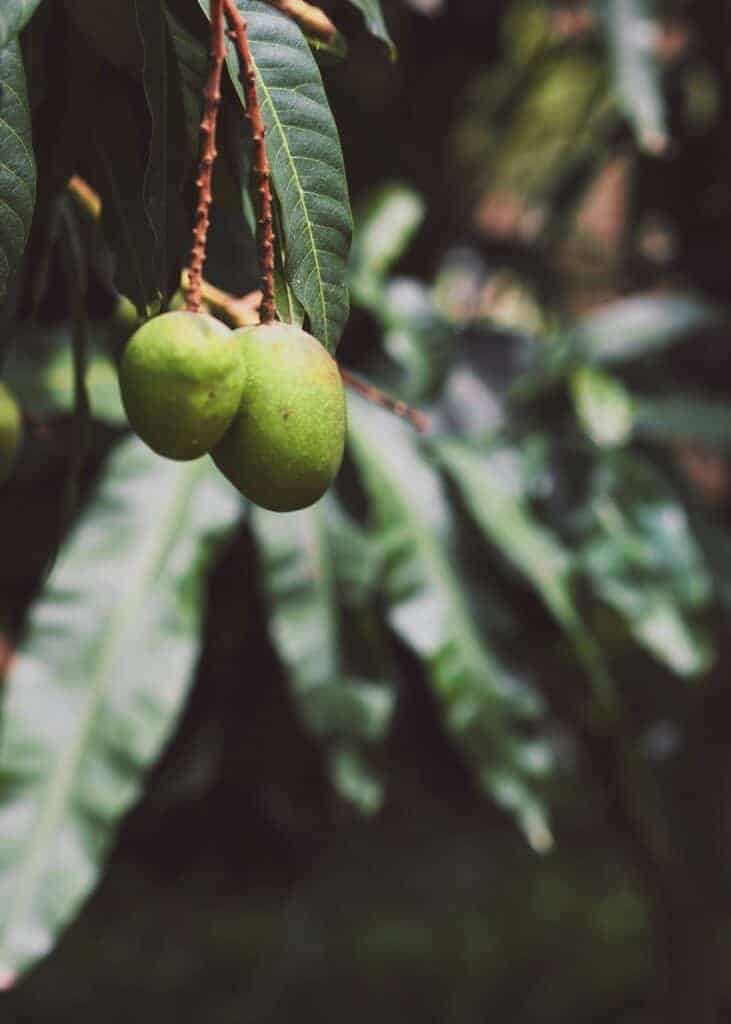Would you pay $5000 for a pair of mangoes? Well, in Japan, they would! Now I know you’re wondering why are mangoes so expensive in Japan?
I’ll tell you why in a bit.
But first let me introduce you to the most expensive mango in Japan, actually, the most expensive mango in the world!
Japan’s Miyazaki mangoes are the most expensive mangoes in the world and can sell for as much as $5000. Specifically called the Egg of the Sun (Taiyo no Tamago), it’s grown on the southern island of Kyushu in the Miyazaki prefecture.
I know, I know, ‘Egg of The Sun’ sounds straight out of a video game special quest but I think it gets its name because of its beautiful half rube red and half yellowish orange skin. And inside sweet orange flesh of the fruit.
Trust me, this is the sweetest, melt-in-your-mouth, most delicious mango you’d ever have the privilege of having.

I’ve lived most of my life in Japan, and even I had the opportunity to taste these premium Miyazaki mangos only twice. The first time I was too young to remember but the second time I was MIND. BLOWN. It tasted like candy and I had tears in my eyes. That’s all I can say.
But what makes these mangoes worth $4000 - $5000? Why are mangoes so expensive in Japan?
Why are mangoes so expensive in Japan
Miyazaki mangoes are regarded as one of the premium fruits in Japan. Like Japanese crown melons. Locally grown Japanese mangoes from the Miyazaki prefecture are more expensive than imported mangoes from the Philippines, Thailand, or India.
Locally grown mangoes are so expensive in Japan because of the hard work the farmers put in to grow the perfect mango for it to earn the special distinction of Egg of the Sun (Taiyo no Tamago). To even be considered for this special distinction, the minimum requirements are that the weight of each mango should at least be 350 gm, contain 15% sugar, and the skin must have a deep red color.

In 2022, a pair of premium Miyazaki mangoes from Kyushu was auctioned off for a whopping, record-breaking 5,00,000 yen, which is a little less than $5000. And in 2018, these mangoes were auctioned off for 4,00,000 yen.
With strict growing conditions and quality control, only the best of the best mangoes meet these criteria and reach the auction. However, other mangoes are still sold at $50 or more. These might have small dents, or the color may not be a lighter red, or it may not be the sweetest of the lot.
Related: You will love these Japanese convenience store foods. Check it out!
How are Miyazaki Mangoes Grown in Japan?
When the mangoes are still very small, they are placed in a small net and suspended from the ceiling of the greenhouse with a wire. In fact, many of the other budding fruits are plucked to make sure that a select few of the mangoes growing get the maximum amount of nutrients.

The net surrounding the mango catches it as they fall naturally when it’s fully ripe. Another reason why mangoes are suspended like that is so that these mangoes get maximum sunlight to develop that natural, beautiful ruby red color.
The Miyazaki mangoes are grown in the south of Japan, Kyushu as the climate here during the warmer months is perfect for mangoes growing conditions.
Maybe only a couple of mangoes from the lot get the special distinction and are auctioned at wholesale fruit markets for such high prices. These mangoes are packed beautifully to look less like a grocery item and more like a gift.
That’s also one of the reasons why Japanese mangoes are so expensive, in fact a lot of fruits in general, are expensive in Japan - fruits in Japan are regarded as gifts of extremely high value!
Where are Miyazaki mangoes grown?
Miyazaki mangoes, also known as "Taiyo no Tamago" or "Egg of the Sun," are grown in Miyazaki Prefecture, Japan. Miyazaki Prefecture is located on the island of Kyushu, which is the southernmost of Japan's four main islands. The region's warm climate and fertile soil make it ideal for cultivating high-quality mangoes.
Miyazaki mangoes are highly regarded for their exceptional sweetness, rich flavor, and vibrant color. They are often considered a premium fruit and are sought after both in Japan and internationally.
Related: Do you know why Japanese love raw fish? Find out here!
Giving Miyazaki Mangoes As Gifts In Japan
The reason why mangoes are so expensive in Japan also has a cultural reference - actually this is true for most fruits in Japan. Aristocratic warriors would present fruits, especially tangerines or melons, to their shoguns.

This is a sign of deep respect and appreciation. This gift-giving practice is now ingrained in the Japanese culture. So giving expensive fruits like melons and mangoes to the manager, mentor relatives, and close friends shows deep appreciation.
Basically, other than the farmer’s hard work, it’s because of this gift-giving culture that mangoes and other premium fruits are so expensive in Japan. In fact they’re even packaged like it.
You’ll usually find them in specialty fruit stores or even gift shops - individually packed, placed on silk cloth or hay and tied with a silk/satin ribbon - these premium fruits are also marketed as gifts.
In fact, people who receive these premium Miyazaki mangoes as gifts often contemplate keeping it as display like perishable art or consume it. I mean, I understand this conundrum - how would you get yourself to eat mangoes worth $5000?
If you’re ever in Japan, look out for these premium Miyazaki mangoes, crown melown, white strawberries, or even grapes - if you can buy one, they’re truly worth it. Or if someone gifts you one, know that you’re highly appreciated!
But even if you aren’t able to buy these overly expensive premium Japanese fruits, see you can witness an auction. These fruit auctions almost always make the headlines and you can proudly say that you were there to witness it!
And besides, even if you can’t get your hands on these premium Japanese fruits, indulge in fruits at the local fruit markets where the fruits are priced more affordably. They may not be the best-looking or best-tasting fruits but they’re still better than fruits in most other countries!
Also Read:




